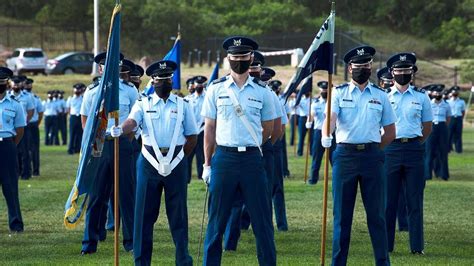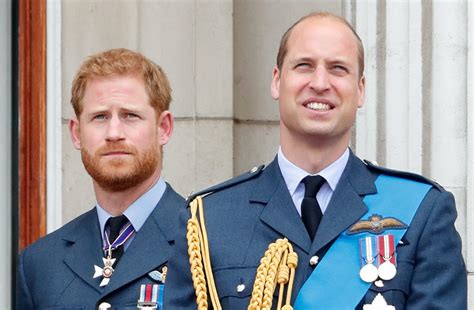
Transgender graduates of the Air Force Academy who met all requirements for commissioning as officers have been denied those commissions due to a Department of Defense policy, sparking outrage among LGBTQ+ advocates and raising questions about the military’s commitment to inclusivity.
Despite successfully completing their academic and military training at the Air Force Academy and fulfilling all necessary standards, these cadets are being blocked from serving as commissioned officers because of a policy that predates the Biden administration’s efforts to expand transgender rights. The situation highlights a conflict between stated commitments to diversity and inclusion within the military and existing regulations regarding transgender service members.
According to a report by the Los Angeles Blade, at least two graduates have been affected. The cadets, who have not been publicly identified to protect their privacy, completed their training and expected to move on to their chosen Air Force careers, only to be informed that they would not be commissioned.
The policy in question stems from regulations that dictate medical requirements for service, which, according to some interpretations, create barriers for transgender individuals even after gender-affirming care. The exact details of the policy and its interpretation in these cases remain a subject of scrutiny and debate.
The Air Force Academy itself has publicly stated its commitment to creating a diverse and inclusive environment. However, the denial of commissions raises concerns about whether the Academy’s stated values are being undermined by broader DoD policies.
Advocacy groups are pushing for immediate action to rectify the situation, calling on the Biden administration and the Department of Defense to review and revise policies that unfairly discriminate against transgender service members. They argue that qualified individuals who meet all standards should not be denied the opportunity to serve based on their gender identity.
Details of the Denials
The specific reasons cited for the denial of commissions have not been made public by the Air Force or the Department of Defense, citing privacy concerns. However, it is understood that the denials are linked to the cadets’ transgender status and the application of existing DoD medical policies.
The cadets in question reportedly underwent gender-affirming care during their time at the Academy, following the established protocols and guidelines. Despite this, the DoD policy appears to present a hurdle that prevents their commissioning. This situation has prompted criticism, with some arguing that the policy effectively punishes individuals for seeking medical care that is now widely accepted and supported.
One of the central issues is the interpretation of medical readiness standards. While the military has made strides in recent years to be more inclusive of transgender individuals, some regulations may still pose challenges. These regulations often focus on issues such as stability of medical treatment, potential deployment limitations, and the long-term health of the service member.
However, critics argue that these concerns are often based on outdated stereotypes and assumptions about transgender individuals. They point out that many transgender people are perfectly capable of meeting the physical and mental demands of military service and that blanket policies that exclude them are discriminatory and unnecessary.
Reactions and Advocacy
The denial of commissions has triggered strong reactions from LGBTQ+ advocacy groups and civil rights organizations. These groups are actively working to raise awareness of the issue and to pressure the Department of Defense to change its policies.
Jennifer Dane, the Interim Executive Director of the Modern Military Association of America, a leading advocacy organization for LGBTQ+ service members and veterans, told the Los Angeles Blade, “It’s devastating. It’s heartbreaking.” She added, “These are cadets who have met every single standard. They’ve jumped through every hoop, and they’re being told they can’t commission. It’s a slap in the face.”
Advocates argue that the denials not only harm the individuals involved but also send a chilling message to other transgender people who may be considering military service. They fear that the policy will discourage qualified candidates from joining the armed forces, ultimately weakening the military’s ability to attract and retain talent.
Several members of Congress have also expressed concern about the situation. They have called on the Department of Defense to provide a clear explanation of the policy and to take steps to ensure that transgender service members are treated fairly and equitably.
The Broader Context of Transgender Military Service
The issue of transgender military service has been a subject of intense debate and policy changes in recent years.
In 2016, the Obama administration lifted the ban on transgender individuals serving openly in the military. This decision was based on a comprehensive review of the evidence, which concluded that transgender service members could serve effectively without negatively impacting military readiness or cohesion.
However, in 2017, the Trump administration announced a new policy that effectively reinstated the ban. This policy imposed significant restrictions on transgender service members, including barring individuals who had undergone gender transition and requiring those who had not transitioned to serve in their birth gender.
The Trump administration’s policy was widely criticized by LGBTQ+ advocacy groups and civil rights organizations. They argued that the policy was discriminatory and based on unfounded fears and prejudices. Several lawsuits were filed challenging the policy, and in 2021, the Biden administration rescinded it.
President Biden issued an executive order that reversed the Trump administration’s policy and directed the Department of Defense to allow transgender individuals to serve openly in the military. The Biden administration also updated the military’s policies to ensure that transgender service members receive the same benefits and opportunities as their cisgender counterparts.
Despite these positive changes, some challenges remain. As the cases of the Air Force Academy graduates illustrate, existing DoD policies and regulations can still create barriers for transgender service members.
The Potential Impact on Military Readiness
One of the key arguments made by opponents of transgender military service is that it could negatively impact military readiness. They argue that transgender service members may require medical care that could be costly and disruptive to military operations. They also argue that the presence of transgender individuals in the military could undermine unit cohesion and morale.
However, these arguments have been widely debunked by experts. Numerous studies have shown that transgender service members are just as capable and dedicated as their cisgender counterparts. They also have found that providing gender-affirming care to transgender service members is not unduly costly or disruptive.
In fact, some argue that allowing transgender individuals to serve openly in the military can actually enhance military readiness. By attracting and retaining talented individuals from all backgrounds, the military can improve its overall effectiveness and ability to meet the challenges of the 21st century.
The Path Forward
The situation involving the Air Force Academy graduates highlights the need for continued vigilance and advocacy to ensure that transgender service members are treated fairly and equitably.
The Department of Defense should conduct a thorough review of its policies and regulations to identify and eliminate any barriers that prevent qualified transgender individuals from serving. It should also provide clear guidance to military leaders and personnel on how to implement the Biden administration’s policies on transgender military service.
Congress should also play a role in ensuring that transgender service members are protected. It should pass legislation that codifies the right of transgender individuals to serve in the military and that prohibits discrimination based on gender identity.
Ultimately, the goal should be to create a military that is truly inclusive and welcoming of all qualified individuals, regardless of their gender identity. This will not only benefit transgender service members but also strengthen the military as a whole.
Calls for Policy Review and Reform
Following the denial of commissions, numerous organizations and individuals have called for a comprehensive review of the Department of Defense’s policies regarding transgender service members. They argue that the current policies are unclear, inconsistent, and potentially discriminatory.
One specific area of concern is the lack of transparency in the decision-making process. Advocates have called for the Department of Defense to provide clear and detailed explanations for why the Air Force Academy graduates were denied commissions. They also want to know what specific policies were used to justify the denials.
Another area of concern is the potential for bias in the application of the policies. Some argue that military officials may be more likely to deny commissions to transgender individuals based on personal beliefs or prejudices, rather than on objective criteria.
To address these concerns, advocates have called for the establishment of an independent oversight body to review all cases involving transgender service members. This body would be responsible for ensuring that the policies are applied fairly and consistently and that transgender service members are treated with respect and dignity.
The Role of Leadership
Ultimately, the success of efforts to create a more inclusive military will depend on the leadership of the Department of Defense and the military services. Military leaders must make it clear that discrimination against transgender service members will not be tolerated and that all service members will be treated with respect and dignity.
They must also be willing to challenge outdated stereotypes and assumptions about transgender individuals. By promoting understanding and acceptance, they can create a more welcoming environment for transgender service members and ensure that they have the opportunity to succeed.
FAQ: Transgender Cadets Denied Air Force Commissions
1. Why were transgender graduates of the Air Force Academy denied commissions?
The transgender graduates who met all the requirements were denied commissions due to a Department of Defense (DoD) policy that, according to some interpretations, creates barriers for transgender individuals even after undergoing gender-affirming care. The specific reasons cited haven’t been made public due to privacy concerns, but it’s linked to their transgender status and the application of existing DoD medical policies.
2. What are the specific policies or regulations that led to the denial of commissions?
While the exact policies haven’t been publicly specified, the denials are likely related to DoD regulations concerning medical requirements for service. These regulations often focus on the stability of medical treatment, potential deployment limitations, and the long-term health of the service member, which some argue are used to create barriers for transgender individuals even after gender-affirming care.
3. What actions are LGBTQ+ advocacy groups taking in response to these denials?
LGBTQ+ advocacy groups are actively raising awareness of the issue and pressuring the Department of Defense to change its policies. They’re calling for an immediate review and revision of policies that unfairly discriminate against transgender service members. Some groups, like the Modern Military Association of America, are highlighting the cases to demonstrate the impact of these policies.
4. Has the Biden administration addressed transgender military service?
Yes, the Biden administration has taken steps to support transgender military service. President Biden issued an executive order that reversed the Trump administration’s ban on transgender individuals serving openly in the military. The administration also directed the Department of Defense to update its policies to ensure transgender service members receive the same benefits and opportunities as their cisgender counterparts.
5. What is the potential impact of these denials on military readiness and inclusivity?
The denials could discourage qualified transgender candidates from joining the armed forces, potentially weakening the military’s ability to attract and retain talent. It also sends a negative message about the military’s commitment to diversity and inclusion, potentially undermining morale among current and prospective transgender service members. Advocates argue that allowing transgender individuals to serve openly and without discrimination can enhance military readiness by attracting a wider pool of qualified individuals.









